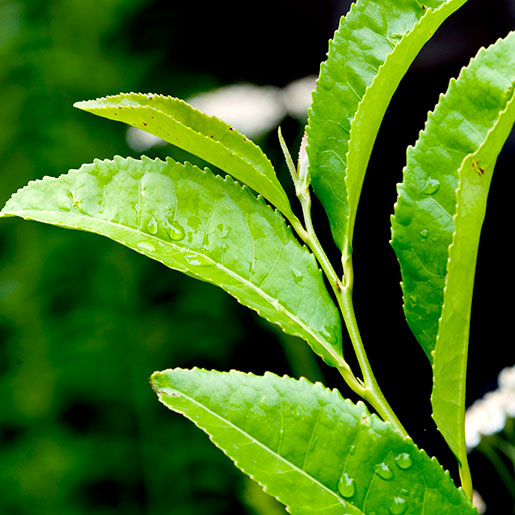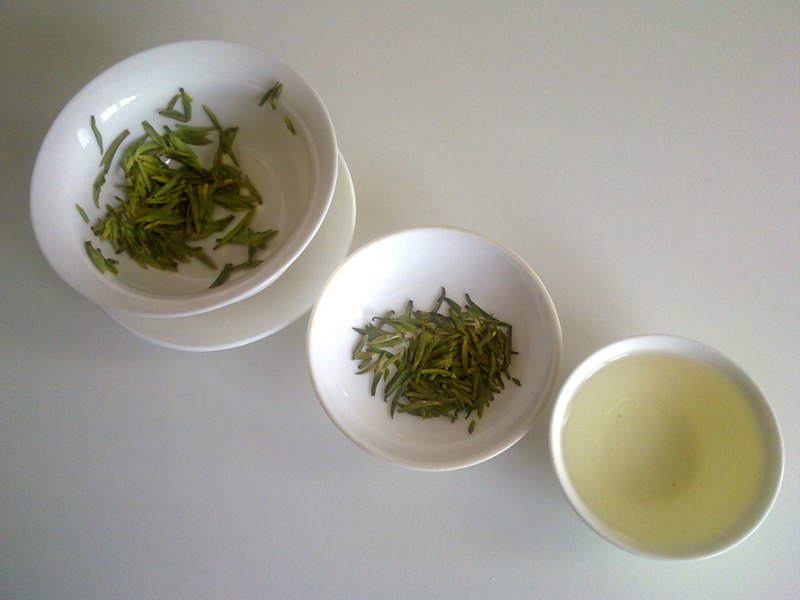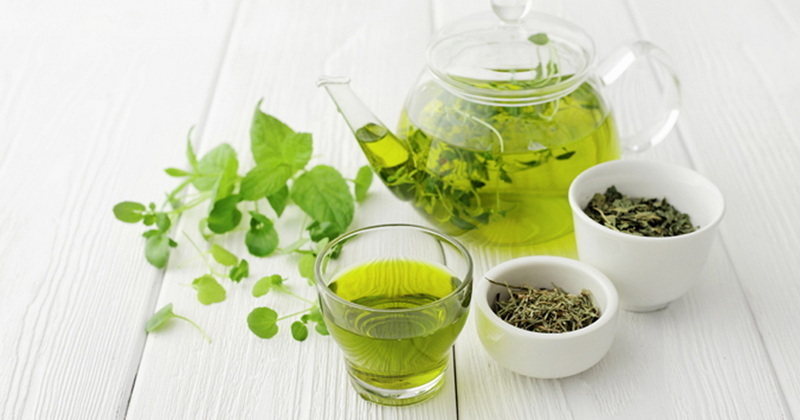Content Menu
● The Origins of Green Tea
● The Tea Plant: Camellia sinensis
● From Leaf to Extract: The Production Process
● The Science Behind Green Tea Extract
● Green Tea Extract vs. Drinking Green Tea
● The Global Green Tea Extract Market
● Sustainability and Ethical Considerations
● Safety and Potential Side Effects
● The Future of Green Tea Extract Research
● Conclusion
● FAQ
>> 1. How much green tea extract should I take daily?
>> 2. Can green tea extract help with weight loss?
>> 3. Are there any side effects of taking green tea extract?
>> 4. How does green tea extract compare to drinking green tea?
>> 5. Is green tea extract safe for everyone?
● Citations:
Green tea extract is a popular dietary supplement that has gained significant attention in recent years due to its potential health benefits. But have you ever wondered about its origins and how it's produced? Let's dive deep into the world of green tea extract and explore its journey from leaf to supplement.

The Origins of Green Tea
Green tea has a rich history dating back thousands of years. It originated in China, with its discovery often attributed to the legendary Emperor Shennong in 2737 BC[1]. According to the tale, a tea leaf accidentally fell into the emperor's cup of hot water, creating the first infusion of tea. From this serendipitous event, the practice of tea drinking spread throughout China and eventually to other parts of Asia and the world.
The Tea Plant: Camellia sinensis
Green tea extract comes from the same plant as all true teas - Camellia sinensis. This evergreen shrub is native to East Asia and can grow up to 9 meters tall in the wild. However, for tea production, it's usually pruned to a height of about 1-2 meters[1].
The leaves of Camellia sinensis are rich in polyphenols, particularly catechins, which are responsible for many of the health benefits associated with green tea. The most abundant and well-studied catechin in green tea is epigallocatechin gallate (EGCG).
From Leaf to Extract: The Production Process
The journey from tea leaf to green tea extract involves several steps:
1. Harvesting: Tea leaves are carefully picked, typically by hand, to ensure only the youngest and most tender leaves and buds are selected.
2. Processing: Unlike black or oolong teas, green tea leaves are minimally processed. They are quickly heated to prevent oxidation, which preserves their green color and delicate flavor.
3. Drying: The leaves are then dried to remove moisture and prepare them for extraction.
4. Extraction: This is where green tea leaves become green tea extract. The dried leaves are treated with solvents to extract the active compounds. Water, ethanol, or a mixture of both are commonly used as solvents[2].
5. Concentration: The liquid extract is then concentrated by removing the solvent, often through evaporation.
6. Powderization: Finally, the concentrated extract is dried and ground into a fine powder.
The Science Behind Green Tea Extract
Green tea extract is rich in polyphenols, particularly catechins. These compounds are potent antioxidants that have been associated with various health benefits. The most abundant catechin in green tea extract is EGCG, which has been the focus of numerous scientific studies[2].
Research suggests that green tea extract may:
- Aid in weight loss
- Improve brain function
- Enhance exercise performance and recovery
- Support heart health
- Potentially reduce the risk of certain cancers
However, it's important to note that while many studies show promising results, more research is needed to fully understand the effects of green tea extract on human health.

Green Tea Extract vs. Drinking Green Tea
While both green tea and its extract offer health benefits, there are some key differences:
1. Concentration: Green tea extract is much more concentrated than brewed green tea. A single capsule can contain as much EGCG as several cups of tea[2].
2. Convenience: Extract supplements are more convenient for those who don't enjoy drinking tea or want to avoid the caffeine in brewed tea.
3. Controlled dosage: Supplements allow for a more precise intake of catechins.
4. Lack of other compounds: Green tea contains other beneficial compounds like L-theanine, which may not be present in the extract.
The Global Green Tea Extract Market
The popularity of green tea extract has led to a booming global market. According to market research, the global green tea extract market is expected to grow significantly in the coming years, driven by increasing health consciousness and the growing popularity of natural supplements[6].
Sustainability and Ethical Considerations
As the demand for green tea extract grows, it's crucial to consider the sustainability of tea production. Many tea plantations are working towards more sustainable practices, including organic farming methods and fair trade certifications. When choosing green tea extract supplements, look for products that are certified organic and fair trade to support ethical and sustainable production practices.
Safety and Potential Side Effects
While green tea extract is generally considered safe for most people, it's not without potential side effects. The most common side effects are related to its caffeine content and may include insomnia, nervousness, and rapid heart rate[7].
In rare cases, high doses of green tea extract have been associated with liver problems. It's important to follow the recommended dosage and consult with a healthcare provider before starting any new supplement regimen, especially if you have pre-existing health conditions or are taking medications.
The Future of Green Tea Extract Research
As interest in natural health supplements continues to grow, so does research into green tea extract. Scientists are exploring its potential in various areas of health and wellness, from cognitive function to cancer prevention. While many studies show promising results, more large-scale human trials are needed to fully understand the effects and optimal use of green tea extract.
Conclusion
Green tea extract, derived from the leaves of Camellia sinensis, has journeyed from ancient Chinese legend to modern dietary supplement. Its production process involves careful harvesting, minimal processing, and concentrated extraction to preserve its beneficial compounds. While research continues to explore its potential health benefits, green tea extract has already established itself as a popular supplement in the global market.
As with any supplement, it's important to approach green tea extract with an informed perspective. Consider the potential benefits, be aware of possible side effects, and always consult with a healthcare professional before adding it to your regimen. Whether you choose to sip on a cup of green tea or take it in extract form, this ancient plant continues to offer intriguing possibilities for modern health and wellness.

FAQ
1. How much green tea extract should I take daily?
The appropriate dosage can vary depending on the specific product and your individual health needs. Generally, most studies have used doses of 300-400 mg of green tea extract per day. However, it's crucial to follow the dosage instructions on the product label and consult with a healthcare provider before starting any new supplement regimen.
2. Can green tea extract help with weight loss?
Some studies suggest that green tea extract may boost metabolism and increase fat burning, potentially aiding in weight loss. However, the effects are generally modest, and green tea extract should not be considered a magic solution for weight loss. A balanced diet and regular exercise remain the most effective strategies for maintaining a healthy weight.
3. Are there any side effects of taking green tea extract?
While generally considered safe, green tea extract can cause side effects in some people. These may include stomach upset, constipation, and, in rare cases, liver problems. The caffeine content can also cause insomnia, nervousness, and increased heart rate in sensitive individuals. It's important to stick to recommended doses and discontinue use if you experience any adverse effects.
4. How does green tea extract compare to drinking green tea?
Green tea extract is more concentrated than brewed green tea, providing a higher dose of catechins in a more convenient form. However, drinking green tea provides additional benefits from other compounds like L-theanine and offers a more holistic tea-drinking experience. Both can be part of a healthy lifestyle, depending on personal preference and health goals.
5. Is green tea extract safe for everyone?
While generally safe for most adults, certain groups should exercise caution or avoid green tea extract. These include pregnant or breastfeeding women, people with liver problems, and those taking certain medications that may interact with the extract. Always consult with a healthcare provider before starting any new supplement, especially if you have pre-existing health conditions or are taking medications.
Citations:
[1] https://www.hackberrytea.com/blogs/tea-education/green-tea-101-history-processing-and-health-benefits
[2] https://patents.google.com/patent/US5427806A/en
[3] https://www.alamy.com/stock-photo/green-tea-extract.html
[4] https://www.youtube.com/watch?v=kmlcjBJ05Sk
[5] https://www.youtube.com/watch?v=v_QZJOBH-u4
[6] https://www.healthline.com/nutrition/10-benefits-of-green-tea-extract
[7] https://www.urmc.rochester.edu/encyclopedia/content?contenttypeid=19&contentid=GreenTeaExtract
[8] https://askthescientists.com/green-tea-extract/
[9] https://www.freepik.com/free-photos-vectors/green-tea-extract
[10] https://www.vumc.org/poison-control/toxicology-question-week/march-12-2021-what-are-adverse-effects-green-tea-extract






























